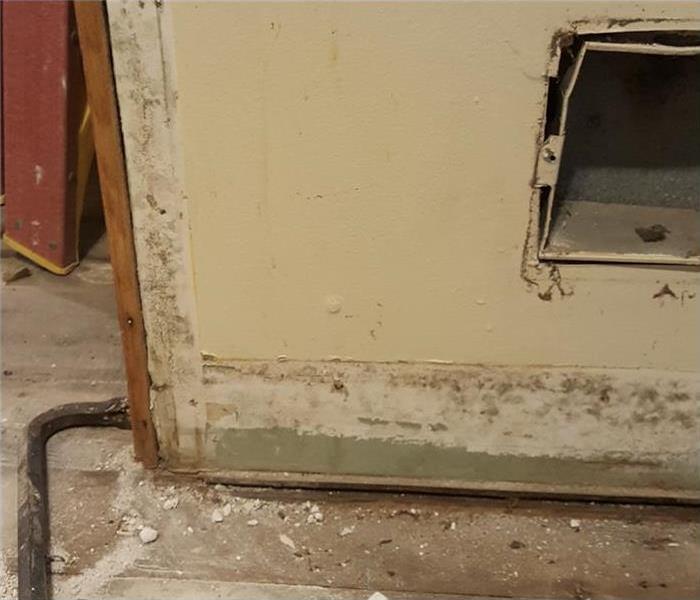What To Do About Black Mold in Your Business
1/26/2021 (Permalink)
Stachybotrys chartarum, commonly known as black mold, can be a nuisance at best and wreak havoc on your Chicago, IL, business at worst. Once it takes hold, it can be tricky and costly to remove. Luckily, if you rent your space, these services should be paid for by your landlord. First, however, you need to know what you're up against.
Know Where To Look
Black mold thrives in places that are dark, damp and poorly ventilated. That makes some rooms more likely targets than others. Check the following areas first:
- Bathrooms
- Kitchens
- Basements
- Beneath or around leaky plumbing
Follow the Signs
If you discover indications of mold, chances are it isn't just on the surface. Part of the reason it is so difficult to remove mold is that it tends to lurk in the dark places behind the walls. Fiberglass insulation, drywall and wood framing are all targets, which means mold cleanup will take more than spraying disinfectant. Wherever you find mold on surfaces, assume that it is elsewhere as well.
Call In the Pros
Once you have identified a problem area, the first thing to do is make arrangements for it to be removed by a professional mold removal company. If the problem is not too widespread, mold remediation might be relatively painless. If the problem has been allowed to fester, however, and mold damage has spread, be prepared for a more intensive process, which could mean loss of property as well as lost business.
Know Your Rights as a Renter
The best way to navigate mold in your rental space is to be direct and open with your landlord so each of you knows what to expect from the other. In the event that the property owner is not cooperative, don't risk your business or further damage. You have rights and protections that ensure that the building owner takes action. Unfortunately, that may mean that it is time to contact a lawyer.
Black mold is an unwanted guest in any commercial space, but with the right help it need not stay long.



 24/7 Emergency Service
24/7 Emergency Service
